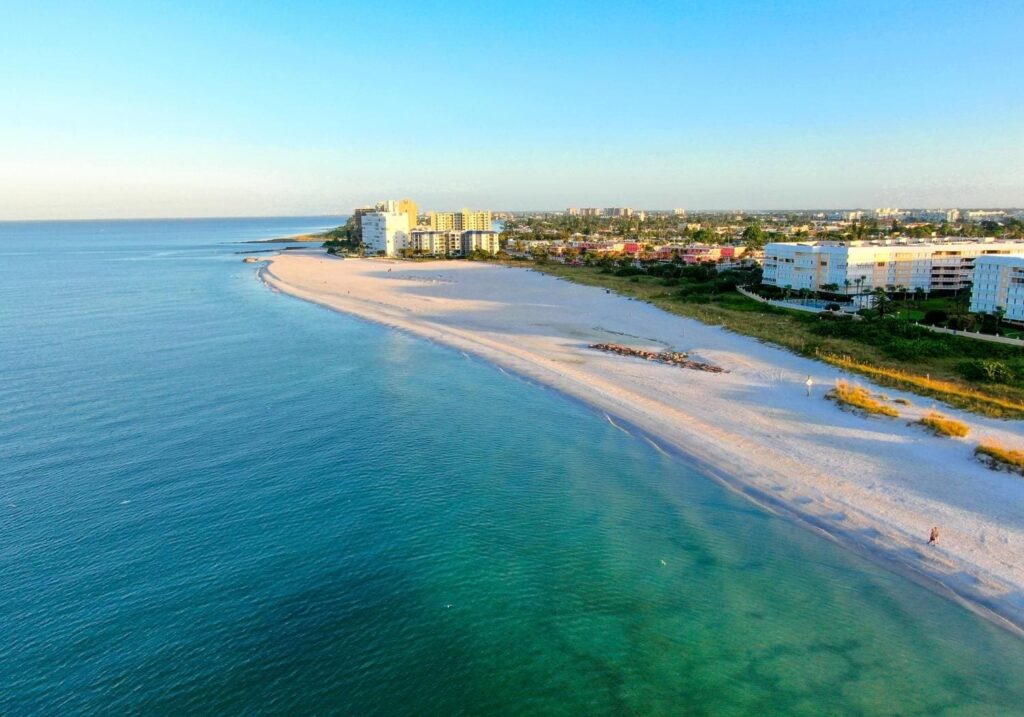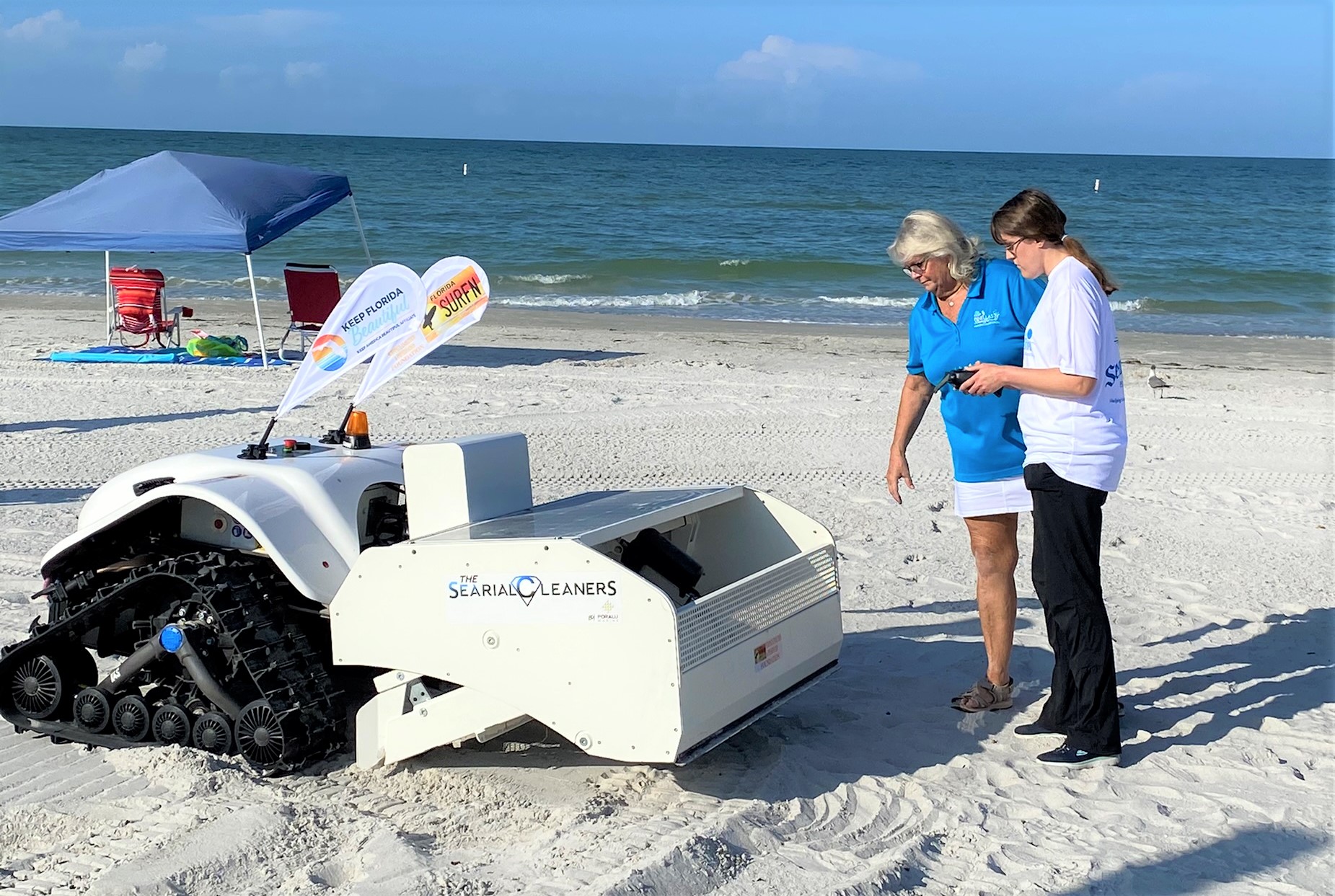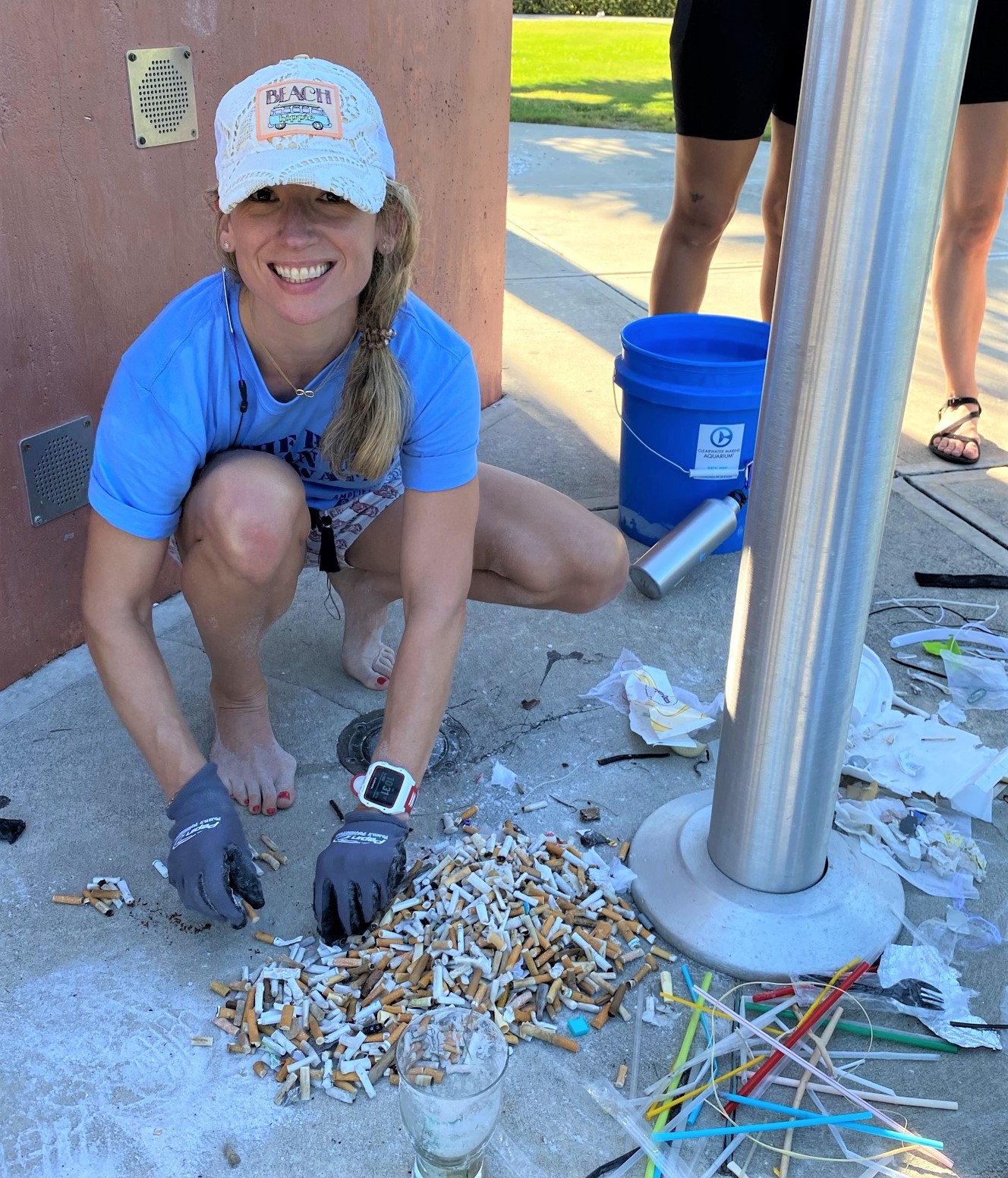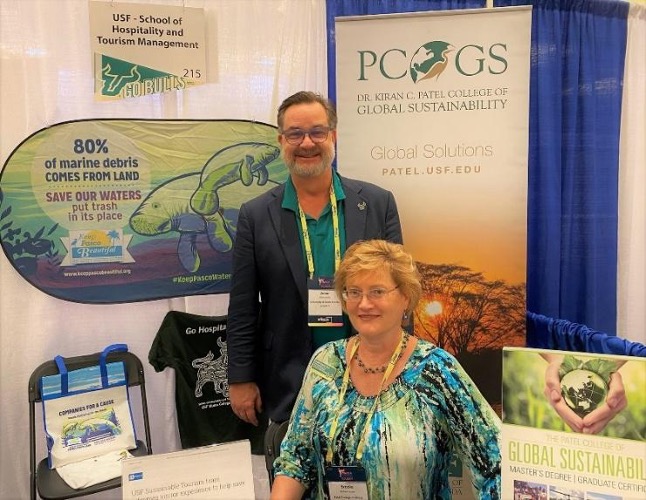In much of the U.S., state DMOs remain focused on marketing and don’t address stewardship efforts. Who, then, will? Dr. Brooke Hansen describes the initial success of two partnership arrangements incorporating the hospitality industry in the greater Tampa Bay area.

Beautification Nonprofits Take the Lead
Two Keep America Beautiful Affiliates in west central Florida have taken up the role of leading destination stewardship by collaborating with several key partners.
Destination stewardship is integral to upholding the triple bottom line of sustainable tourism, but to be successful, it needs to promote participatory governance, inclusion of diverse stakeholders and residents, valuation of ecosystem services, and integrity of culture and place. It also needs to align with global integrative frameworks such as the UN Sustainable Development Goals and Tourism 4 SDGs platform. The Destination Management Action Plans (DMAPs) created by the Hawai’i Tourism Authority, for example, have been exemplary but not every state, including Florida, will have its DMO leading the stewardship efforts. Each state needs to evaluate its assets and find the right path.
A Path Forward for Florida
In Florida, key stakeholders have come together to discuss and plan how we can engage with destination stewardship. Partners include non-profit organizations such as Keep Pinellas Beautiful and Ocean Allies, local DMOs, chambers of commerce, businesses with sustainable products, and academic programs such as the University of South Florida Sustainable Tourism Program, where I serve as Director.
After assessing other models of how destinations are promoting stewardship (or not), we have come up with a program for Florida that could provide a roadmap for other locations. The Florida Department of Environmental Projection already manages the state’s Florida Green Lodging Program, but does not have the capacity to oversee a statewide comprehensive destination management plan.

Two County-level Programs Set an Example
The initiative we all developed resulted in the Hospitality Eco-Partnership program, led by Keep Pinellas Beautiful, and the Sustainable Tourism Development Plan, launched by Keep Pasco Beautiful. Both received seed funding from the Tampa Bay Regional Planning Council. Students from USF’s Sustainable Tourism Program have worked as interns in the development of these projects where I have served as a consultant since their inception.
While still in their initial stages and only a few years old, the programs are providing momentum and data to develop a statewide sustainable destination management action plan based on the successes of this model along Florida’s Gulf Coast.
“Hospitality Eco-Partnership,” Led by Keep Pinellas Beautiful
Keep Pinellas Beautiful (KPB) has the resources to mobilize tens of thousands of volunteers across the county each year to clean up litter, remove invasive vegetation, plant native gardens, and educate at outreach events. The initiative they have developed aims to work with the hotel industry to encourage more sustainable operations and involve tourists in more sustainable behaviors. The Hospitality Eco-Partnership program is focused on hotel management, staff, and guests in promoting environmental protection, conservation, and volunteering. The program includes:
- Environmental Education – Staff education and training on stormwater debris and coastal environments.
- Adopt-Your-Coast – KPB provides the training and supplies for hospitality partners to host four (or more) cleanups a year at a nearby stretch of coastline.
- Group and Special Event Cleanups – KPB provides additional supplies, support, and presentations for large group and special event cleanups (e.g., corporate groups, weddings, conferences, etc.).
- Eco-Experience Tours – During 2021 four “net-zero” educational tours were organized highlighting key ecosystems, stormwater management, and local culture. In 2022, I led one of the Eco-Experience tours to Egmont Key, the outermost island in Tampa Bay, where we had hospitality workers, visitors, students and locals join us for an educational clean-up on the island in support of United Nations Sustainable Development Goal 11.4 focused on safeguarding the world’s cultural and natural heritage. I also highlighted SDG 13 Climate Action as half of Egmont Key, a popular tourist destination only accessible by boat, has already eroded into the sea, bringing many cultural heritage sites with it.

- Cigarette Litter Prevention Program – KPB cigarette receptacles are provided for hospitality properties.
- Social Media Promotion – Assistance is provided for electronic event promotion on KPB’s social media pages.
- Sustainability Training – Education is provided by trained Keep Pinellas Beautiful staff on certifications, opportunities to reduce plastic pollution, and a sampling of eco-friendly products (e.g., pocket ashtrays, reusable straws, compostable containers). I have devoted most of my time as a consultant with the program developing sustainable certification “menus” with my students, to be used in the program with both hotels and restaurants so they can see what pathways they can follow from ocean-friendly certifications to B Corps.
As of Aug. 2022, the program has on-boarded three official hotel partners, hosted 26 eco-experience programs, engaged 770 volunteers, and abated roughly 2,053 pounds of litter.
“Companies for a Cause,” Led by Keep Pasco Beautiful’
Launched in 2020, this program has focused on developing a platform to reach out to tourism businesses and assist with their transition to sustainable practices. Many people and businesses want to become more eco-friendly but struggle with where to start. Keep Pasco Beautiful created Companies for a Cause to help local businesses in the hospitality industry increase their sustainability efforts. The project was launched by Kristen King, Coordinator for Keep Pasco Beautiful and a graduate of the USF Sustainable Tourism Program. Kristen used her time in the program to hone the concept and has since hosted over a half dozen USF students to help expand the initiative.
In addition to running numerous cleanups throughout the year, Keep Pasco Beautiful provides education on how to prevent waste from entering local waters and ways to reduce trash at the source. To join the tourism program, companies need to acknowledge what sustainable activities they are currently doing while pledging to work on additional goals to change their behaviors. In return, Keep Pasco Beautiful promotes the businesses as sustainable partners through social media along with listing them on the website.
There is no charge for companies to participate in Companies for a Cause. They must commit to at least five strategies that they have implemented or pledge to prior to the end of the year. There is an annual recertification process that includes addressing additional ways to become more sustainable. Businesses receive a window cling to promote their participation in the program.
The guidebook provides some sustainable strategies businesses can adopt, as well as more information about the Companies for a Cause program. To date, four companies have joined the program and with more USF interns being placed with Coordinator Kristen King, that number is projected to grow.

Expanding the KAB Model Around the State
Our goal is to use these two programs as models and create a destination stewardship blueprint led by Keep America Beautiful Affiliates across the state of Florida with the support of academic programs and other partners. The successes of the programs so far and the potential to expand throughout the state are motivating us forward and were presented at the 2022 Keep Florida Beautiful Annual Conference.
About the Author: Dr. Brooke Hansen is the Director of Sustainable Tourism at Patel College of Global Sustainability, University of South Florida. She is a consultant and academic partner for the Keep Pinellas Beautiful and Keep Pasco Beautiful programs.

